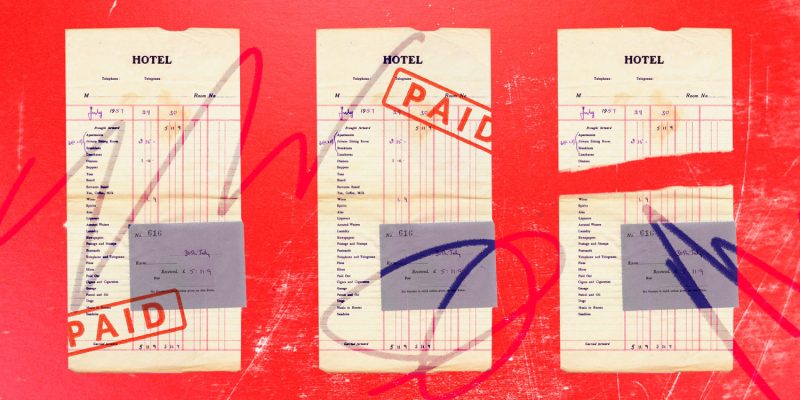The emergence of the internet and digital technology has transformed the hospitality industry’s landscape, and with it, how people plan and carry out their travel experiences. A significant part of this evolution is the proliferation of online booking platforms that offer travelers the convenience to secure hotel rooms with just a few clicks. However, an increasingly worrying trend, more travelers are falling victim to platforms imposing steep hidden fees that inflate the overall cost of their trips unknowingly.
Hidden fees are one of the major drawbacks of using online booking sites. These websites often attract customers with indulging discounts and enticing deals on hotel rooms that appear much cheaper than booking directly with the hotel. However, once a customer decides to make a booking, they discover additional charges, which often take the form of resort fees, service fees, or cleaning fees. These fees, which aren’t included in the advertised price, can drastically increase the overall cost of accommodation and sometimes surpass the actual room price.
Many travelers take the risk and book on these platforms because they believe they are getting a bargain. Low starting prices attract consumers, and by the time they realize about the additional fees, they feel they’ve committed too much time and effort to the booking process to back out. This psychological phenomenon, known as the ‘sunk cost fallacy’, benefits these websites immensely.
Moreover, these additional fees are often not fully disclosed or are presented in a way that travelers may overlook them. Services fees are usually broken down into ambiguous terms such as resort fee or urban fee without any detail on what they entail. In other instances, these fees are hidden in fine print or obscure parts of the website causing customers not to notice until the final payment stage.
Additionally, these platforms use the allure of a smooth and quick booking process to attract customers, allowing them to compare prices across different hotels or even secure a last-minute booking. However, some travelers have reported cases of double-booking and non-refundable bookings despite services not being rendered, causing frustrations and inconveniences that outweigh the initial allure of convenience.
In response to this troubling trend, some regions have started to enforce measures to restrict the addition of hidden costs to advertised prices in the hospitality industry. For instance, these regulatory measures ensure that any additional charges are explained in full and included in the upfront price showing on the website. Having such regulations will ensure transparency and honesty, allowing travelers to know what they are paying for.
In conclusion, while online booking platforms continue to be a popular option for securing hotel rooms thanks to their convenience and perceived cost-effectiveness, travelers must be careful to avoid falling victim to hidden fees. It’s recommended that travelers thoroughly review their booking details before finalizing their decision and advocate for more transparency in pricing. Meanwhile, the industry should work towards consumer-friendly practices that value transparency and fairness to ensure the hospitality and travel industry thrives in the age of digital transactions.




